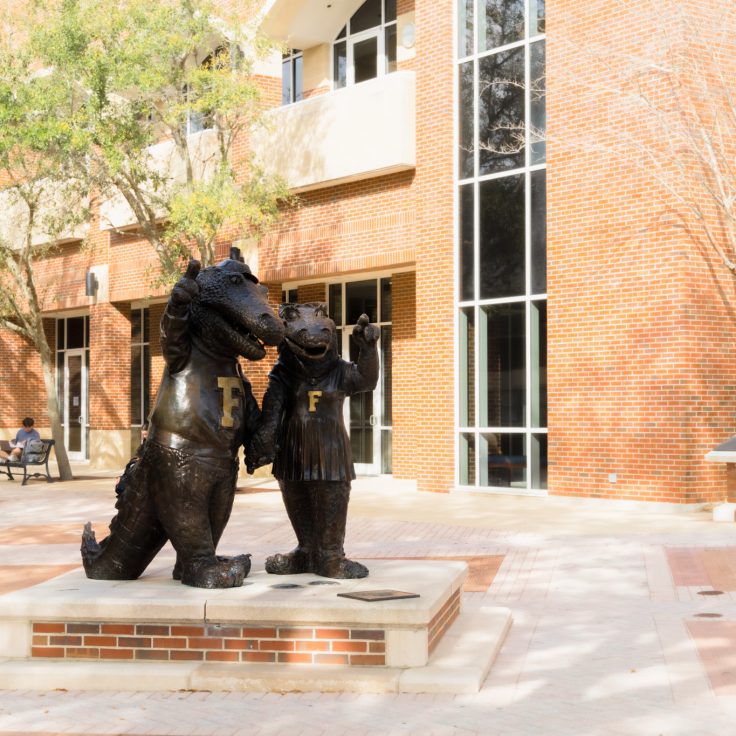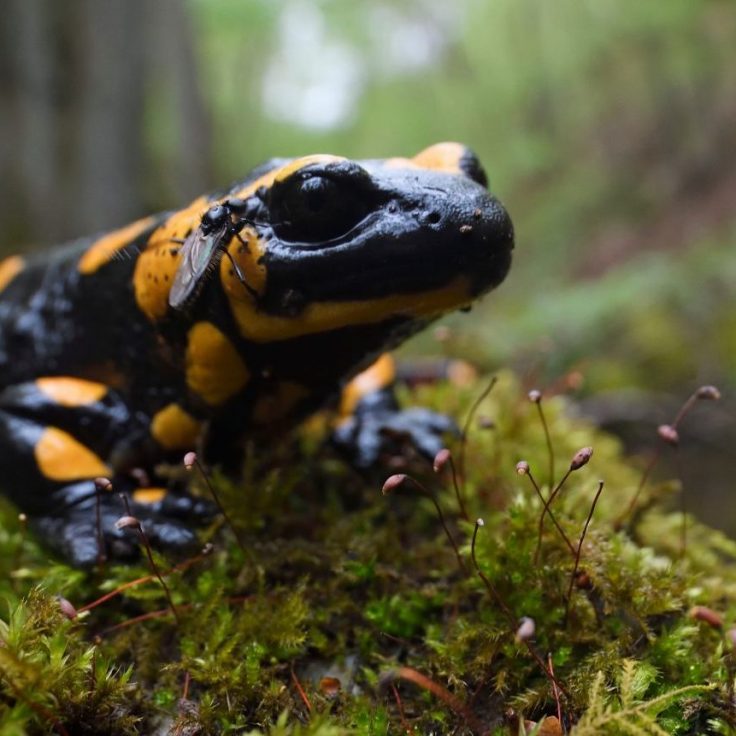
Courtesy photo
Next Thing You Know
Triple-Gator Leandra Merz finds flexibility is key when life takes new, exciting directions
LEANDRA MERZ arrived in rural Zambia as a Peace Corps volunteer in 2009 with an arsenal of skills that seemed to check every box. She was well-versed in issues spanning ecology, agriculture and forestry. She’d studied Swahili and even picked up Bemba, the local Bantu language indigenous to Zambia. Merz stood confident in her ability to communicate, building trust with the villagers she lived and worked alongside. Still, as she led trainings and educational programs to boost food security in the region, a revelation stunned her: She had no idea what she was doing. 
“I had a lot of skills,” she said. “But even with those skills, I started asking myself: Who am I to show up and just try to fix things?” A clear picture of the global context of development work and humanitarian aid eluded her. If she wanted to truly make a difference, she knew she’d have to return to school — something Merz had sworn she’d never do again.
Before her time in Africa, Merz thrived academically as an undergraduate wildlife ecology and conservation major at the University of Florida. She was a zealous learner with an aptitude for research. But she was eager to strike out on her own and take action, not sit in a lecture hall taking notes.
As she reflected while on the plane en route back to the United States, Merz could scarcely believe her new mission to return to academia. It was just the first of many surprises over the next few years that often led her back to her alma mater: Merz would soon find herself embracing unexpected roles as a mentor, mother, farmer, nonprofit leader and award-winning teacher.
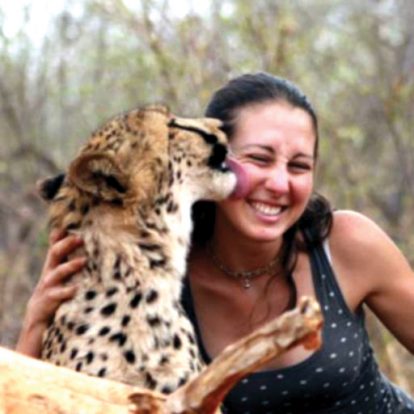
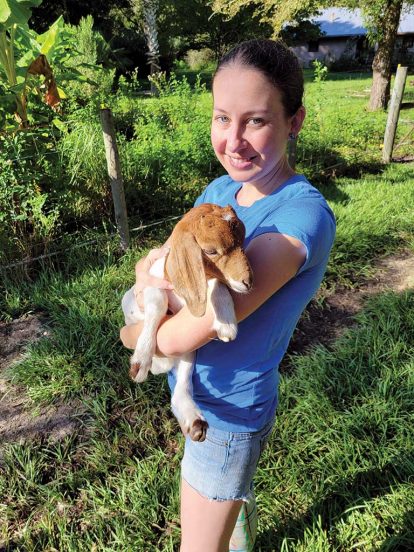 While she weighed options for graduate studies, Merz started volunteering at the Palm Beach Zoo & Conservation Society, where she showed her versatility by quickly — and unexpectedly — landing a full-time job as a zookeeper. A lover of animals with a knack for picking up new skills, she savored the job even amid long hours that often required getting up in the middle of the night to bottle feed baby animals. But the pull to return to school, and eventually to Africa, stayed with her.
While she weighed options for graduate studies, Merz started volunteering at the Palm Beach Zoo & Conservation Society, where she showed her versatility by quickly — and unexpectedly — landing a full-time job as a zookeeper. A lover of animals with a knack for picking up new skills, she savored the job even amid long hours that often required getting up in the middle of the night to bottle feed baby animals. But the pull to return to school, and eventually to Africa, stayed with her.
After two years, she made the leap. Merz selected UF’s Master of Sustainable Development Practice program to gain practical skills in preparation for an eventual return to Africa. Under the supervision of her advisor, geography professor BRIAN CHILD, Merz grasped the deeper contexts of global work, polished her Swahili and completed a practicum in Mozambique. When Merz moved back to Africa once more in 2014, she returned with a completely different mission: to launch an educational nonprofit.
THE SURPRISING NEXT STEP BEGAN TO TAKE SHAPE after a brief visit back to the village she’d served in the Peace Corps. Joined by her now-husband, also a Peace Corps volunteer, Merz reunited with kids she’d tutored and befriended during her service, many of whom were hoping to attend high school. “They were so excited, but they couldn’t afford to go,” she said. Merz wanted to offer the small savings she had to help, but the scale of need was too great. “I knew I couldn’t do it alone, but I thought maybe I know enough people who would be willing to step in.”
Merz worked to mobilize funds, first within her personal network and then expanding outward. Before she knew it, she’d founded a full-fledged organization called IIM International. “Part of me thought, I don’t know that I wanted to do this, but if we’re going to do it, we should do it right,” she said. 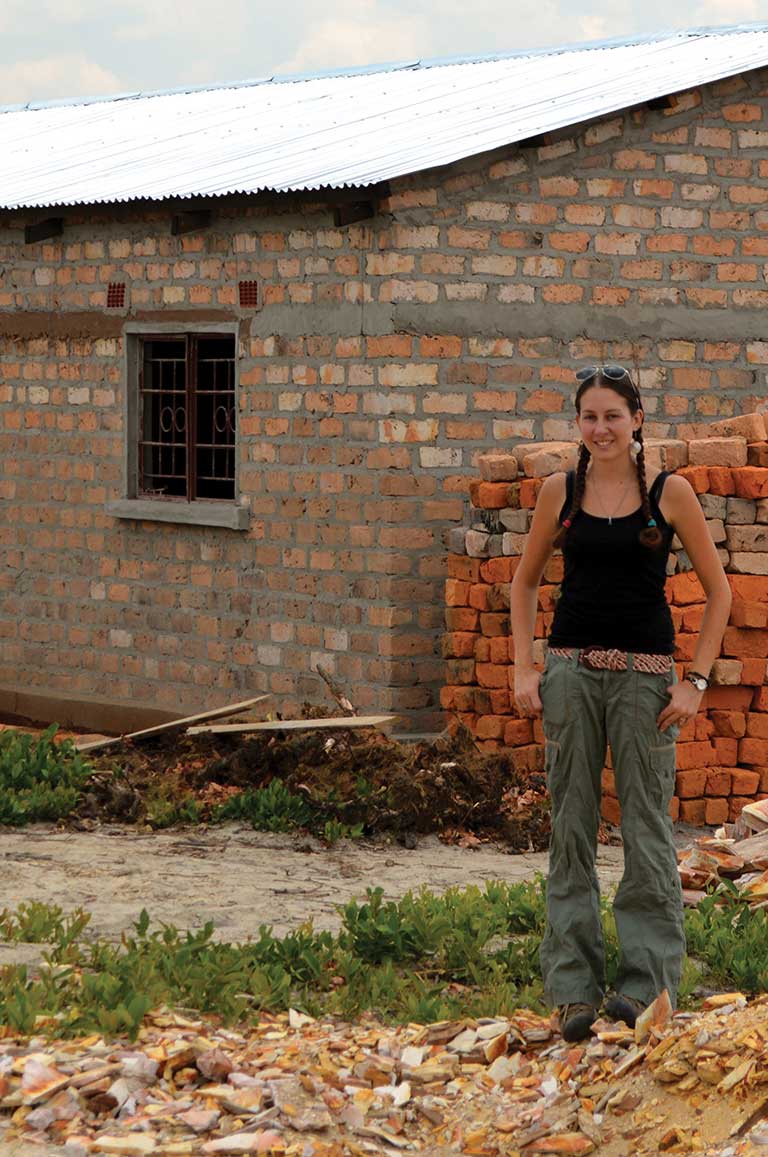
Merz and her new husband spent the next three years in Zambia overseeing the construction of a facility and hiring a full staff. They established a home where students, many of them orphans, found lodging, nutritious meals, medical access and security guards — effectively removing each barrier to education the children faced.
“Meanwhile, my advisor [Brian Child] was telling me I should come do a PhD with him, but I kept saying I wanted to stay in Africa and actually do stuff — not just sit there and talk about doing stuff or read about doing stuff,” Merz said.
Then, Merz’s husband developed a life-threatening illness. Faced with a move back to the United States for his long-term medical treatment, Merz called her advisor and agreed to join him for a PhD program, enrolling in UF’s geography department. She jumped back into research projects and coursework — and stepped into a new role teaching conservation courses.
Merz began to build a new life outside of academia, too. She and her husband bought a 10-acre farm in nearby High Springs, Florida — and, drawing on her zookeeping background, filled it with a menagerie of animals. The couple also became foster parents to a 4-month-old girl, building a family and homestead during the height of the pandemic. While working to finish up her PhD program in fall 2021, Merz received a phone call that changed everything — a two-day-old baby also needed foster parents. “I got the phone call and four hours later there was a newborn baby in my house,” she said.
Balancing teaching with her new responsibility was difficult, but Merz had the support of her colleagues, including geography department chair JANE SOUTHWORTH. Merz would stroll her foster baby into Southworth’s office before walking downstairs to teach. “She watched him while I taught for the first part of the semester — as a female chair, she’s there and she’s encouraging others,” she said.
Southworth was one of many colleagues encouraging Merz to follow her dreams. “I’ve been lucky to have so many inspirational women at UF reminding me that I can do this and still have a farm and still have kids and still have a life,” she said. “You don’t have to give anything up, you don’t even have to wait until you graduate — just do what you love and keep working for it.”
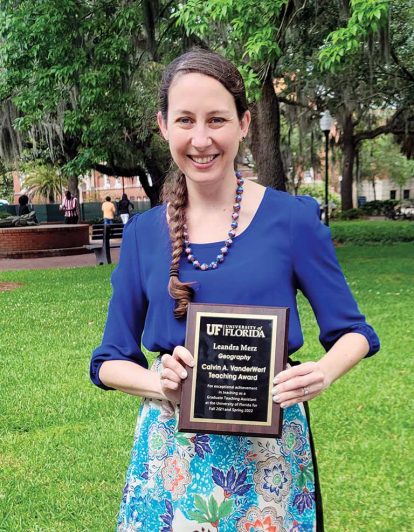
Merz herself developed a reputation across campus as a mentor. She frequently offers stories from her diverse life experiences to inspire students to pursue their own passions. In recognition of her excellence in teaching and mentorship, Merz recently received the Calvin A. VanderWerf Award from the UF Graduate School and the College of Liberal Arts and Sciences. Prior to her graduation this spring, Merz also received the Association for Academic Women’s Emerging Scholar Award in recognition of her outstanding contributions to academia and commitment to serving the community.
Merz is moving on to a new adventure now. She’s transitioning from her work in Africa to study a new, unfamiliar territory: the American West. Her postdoctoral research with the University of Michigan will examine the social-ecological systems there on a large scale. Merz plans to take a sweeping look at the stressors impacting humans and wildlife, from climate change to economic issues, to see how it’s all balancing out. And she’ll do it all remotely, using the powers of geospatial AI technologies including remote sensing and geographic information systems (GIS) to analyze data, completing the study from her High Springs farm. Life just doesn’t lend itself to moving right now — Merz and her husband recently adopted their two foster children. 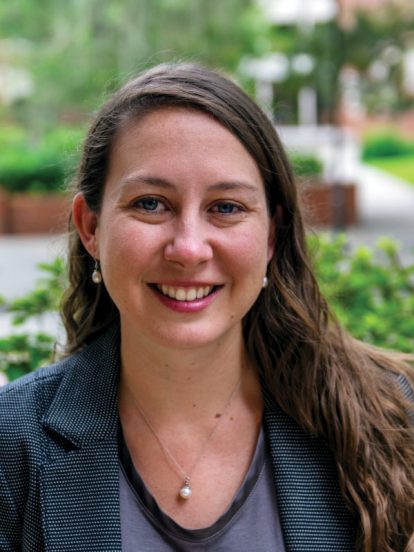
Looking ahead, Merz hopes to turn her research back to Africa and continue her efforts in teaching, but she has learned that it’s all right not to have life all mapped out. “I try to plan now, but also keep an open mind,” Merz said. “Maybe something completely different will fall into my lap and I’ll love it.” No matter where life’s path leads next, Merz is confident that she’ll enjoy the journey.
“Things that I didn’t plan worked out better than I could’ve planned them,” she said.
This story appears in the fall 2022 issue of Ytori magazine. Read more from the issue.
